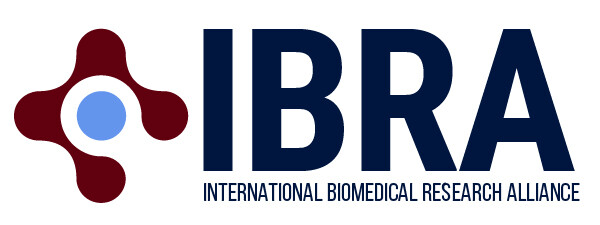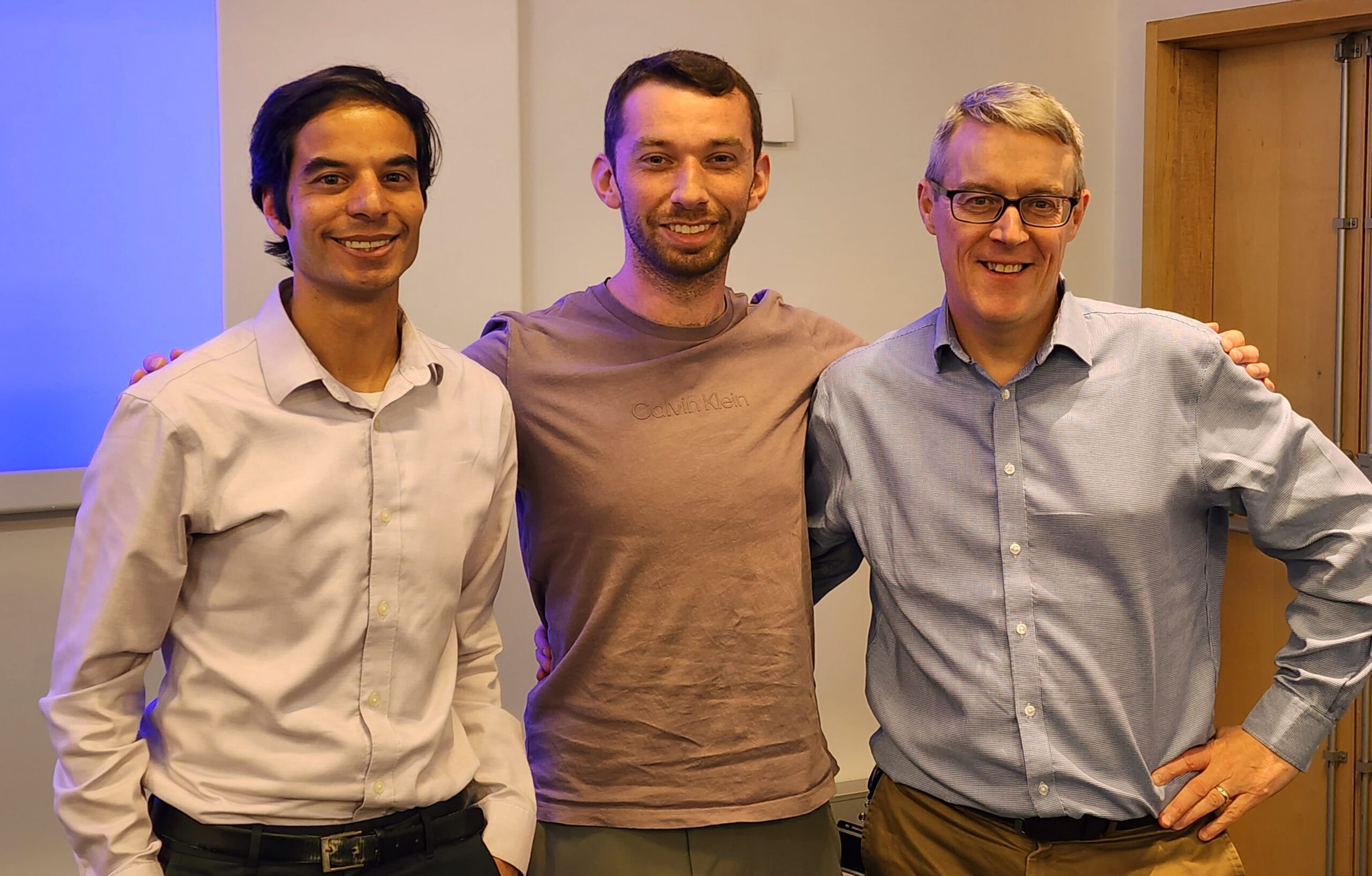The International Biomedical Research Alliance congratulates the Class of 2019 NIH-Cambridge M.D./Ph.D. Scholar Dr. Mario Shammas on being named the 2023 recipient of the Gregory Paul Lenardo Basic Science Award for Discoveries in Cellular and Molecular Biology, endowed by NIH Oxford-Cambridge Scholars Program Co-Founder, Dr. Michael Lenardo, in loving memory of his brother, Gregory Paul Lenardo. This award recognizes discoveries of fundamental cellular, molecular, or genetic processes using model systems that advance scientific understanding of biological processes in higher organisms. This award was presented by NIH OxCam Executive Committee member, Dr. Trevor Archer. Dr. Shammas was jointly mentored by Professor Patrick Chinnery at the University of Cambridge and Dr. Derek Narendra at the National Institute of Neurological Disorders and Stroke.
Mario is being honored with this award as a result of his published work that exemplifies using model systems to uncover fundamental biological processes in higher organisms. Mario characterized a family with myopathy caused by a dominant p.G58R mutation in the mitochondrial protein CHCHD10. Autosomal dominant isolated mitochondrial myopathy (IMMD) is characterized by the onset of proximal lower limb weakness and exercise intolerance in the first decade of life, progressing later to a generalized myopathy. In addition, it can also lead to the development of severe fatal cardiomyopathy.
To understand the disease etiology, he developed a knockin mouse model and found that mutant CHCHD10 aggregated in affected tissues, applying a toxic protein stress to the inner mitochondrial membrane. Unexpectedly, the survival of CHCHD10-KI mice depended on a protective stress response mediated by the mitochondrial metalloendopeptidase OMA1. The results demonstrated that OMA1 was critical for neonatal survival in the setting of inner mitochondrial membrane stress, coordinating local and global stress responses to reshape the mitochondrial network and proteome.
“I am deeply appreciative to receive this award from the International Biomedical Research Alliance and the NIH OxCam Program, and I am thankful to Dr. Lenardo for endowing it. In large part it is a reflection of the remarkable mentorship and unwavering guidance I received over the past four years from my two mentors, Dr. Derek Narendra and Prof. Patrick Chinnery; I will forever be grateful for their steadfast support and for everything they have taught me. Previous in vivo research had suggested that the OMA1 stress response is maladaptive in certain conditions, and since there were no studies showing it to be helpful, it was not known whether the OMA1 response is ever beneficial. This did not sit well with me, as I believe that every biological function has to serve a purpose. Indeed, we were pleasantly surprised to find that the OMA1 stress response was necessary for the survival of our CHCHD10 G58R mouse model, as it mitigated the severity of the cardiomyopathy neonatally. I hope that my research will open up avenues for exploring how we can manipulate mitochondrial stress responses to treat or prevent myopathic and neurodegenerative diseases.”
Mario successfully defended his thesis in May and is now back at the University of Chicago Pritzker School of Medicine, where he is finishing up his clinical years. Afterward, he will apply to residency programs in neurology.

